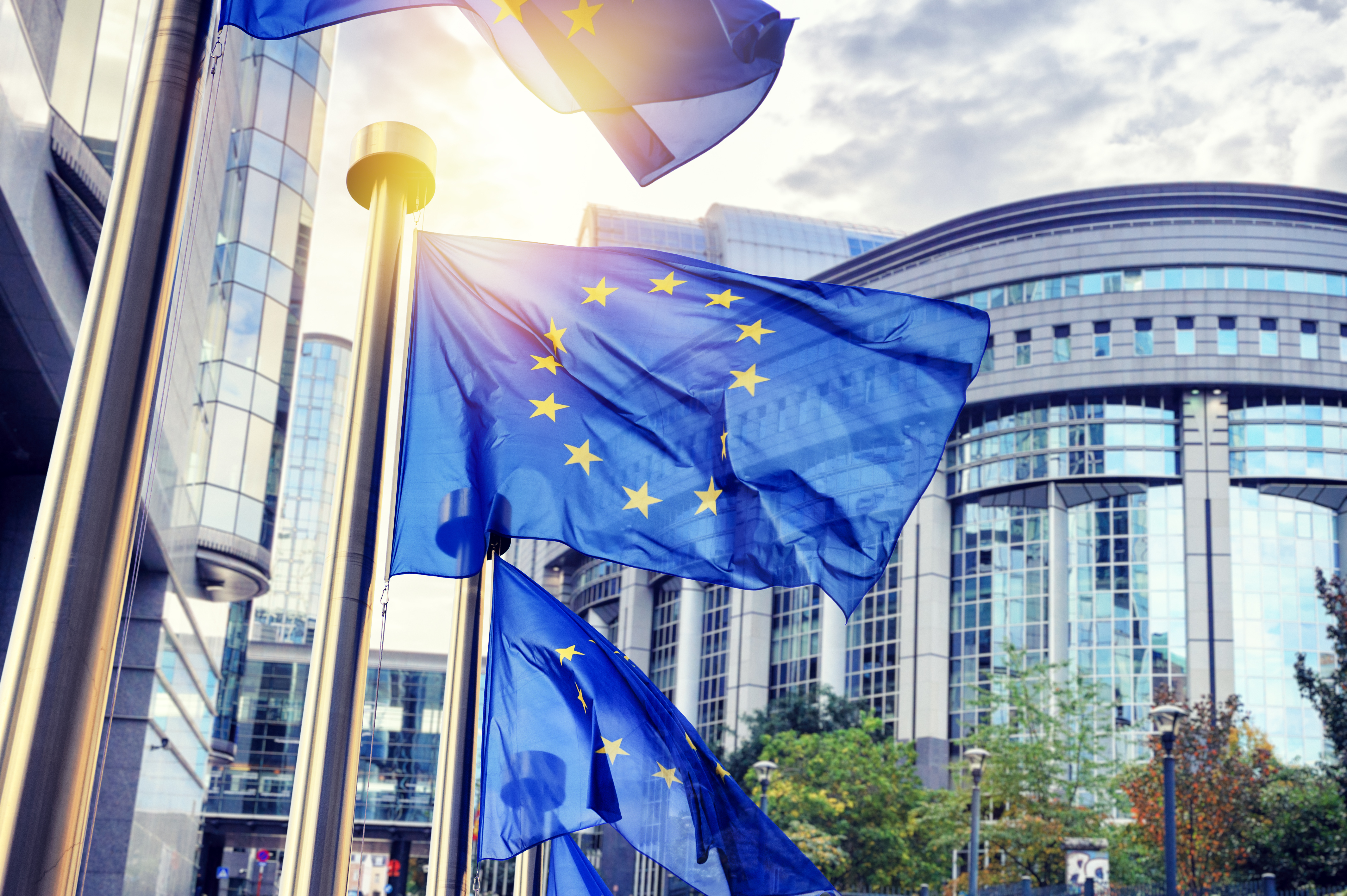I sat down for an hour-and-a-half in early August with Kai Zenner, longtime policy advisor to MEP Axel Voss. Brussels had emptied for the summer, and we sported shorts and t-shirts at an outdoor café in a quiet Place du Luxembourg. We talked about his background in EU digital policy, and in particular about the future of AI, in Europe and beyond. A recurring theme was the EU’s need to think globally and strategically — rather than along nationalistic or ideological lines — in order to compete and stay relevant. Here’s a summary of our conversation.
Mastering Europe's digital infrastructure needs: the future of European telecoms legislation
Written by Shane Cumberton on 28 Aug 2024
In this blog, we look at the future of European telecoms legislation, including the possibilities for a Digital Networks Act during the 2024-2029 mandate.
What next for cyber security and data protection regulation in the UK?
Written by Matthew Niblett on 16 Aug 2024
In this blog, we analyse the Labour government's planned reforms to the UK's data protection and cyber security frameworks.
Will Breton be back?
Written by Igor Ramage on 26 Jul 2024
In this blog, we investigate what role current French Commissioner for Internal Market Thierry Breton might play in the upcoming European Commission.
Supreme Court decision to overturn Chevron Deference signals shift in regulatory abilities
Written by Sameer Surti on 25 Jul 2024
On 28 June, the US Supreme Court overturned the ‘Chevron deference’, an administrative law principle allowing federal agencies to interpret and implement statutes with the understanding that federal courts would ultimately defer to those agencies’ interpretation of ambiguous laws. In this blog, we will go over the Supreme Court’s ruling and the implications it could have on the technology sector, with a particular focus on AI.
European Parliament gets to work
Written by Nathan Shepura on 23 Jul 2024
European Commission President Ursula von der Leyen has won a second five-year term. Her focus will be competitiveness, security and sustainability — defined less by green ideology than a push for clean industrialisation. With the European Parliament’s committees now formed, work will start in the autumn: to vet commissioners-designate, and vie for political control of the new programme. In this blog, we explore the key committees and committee members for the tech sector.
King’s Speech – the UK’s legislative programme for the tech, climate, and energy sectors
Written by Mitali Sud on 18 Jul 2024
On 17 July, King Charles III delivered the King's Speech, outlining the government's legislative programme for the new parliamentary session. The government has announced 40 bills which aim to unlock growth and ‘take the brakes off Britain’. This blog examines the proposals affecting the tech, climate, and energy sectors, and what business should expect as the government introduces legislation.
What does Labour’s election win mean for the tech, climate and clean energy sectors?
Written by Pia Doering on 05 Jul 2024
The electorate has given Labour the second-largest majority (after Tony Blair in 1997) in British parliamentary history since Clement Atlee led a Labour Government in 1945. While the result needs to be qualified by the low voter turnout (at an estimated 60%, it was the second-lowest in post-war history) and the low share of the vote that Labour obtained (at only approximately 34%), the size of its majority means the party will have a largely free hand in pushing its agenda through parliament. Now that the UK has a new Prime Minister, a new parliament, and, shortly, a new cabinet, we look at what Labour’s victory could mean for the tech as well as the climate and energy sectors.
What did the 2019-24 Parliament do for the tech sector?
Written by Matthew Niblett on 30 May 2024
In advance of the General Election on 4 July, Parliament has been formally dissolved. This Parliament, constituted following Boris Johnson’s landslide election victory in December 2019, has passed several pieces of important tech legislation, though some others have fallen by the wayside in the rush to finish business before dissolution. In this blog, we examine what the 2019-24 Parliament, and the government which commanded a majority within it, did for the tech sector.
TikTok Lite sparks EU concerns: A deep dive into digital addiction
Written by Emma Vivian on 20 May 2024
In the fast-paced world of social media, concerns about digital addiction are taking centre stage once again, with TikTok and Meta at the forefront of scrutiny.
New rules for streaming giants head into final Parliamentary stretch
Written by Matthew Niblett on 28 Feb 2024
The Media Bill is a broad piece of legislation which will, amongst other things, makes changes to the way in which video-on-demand services are regulated in the UK. On 28 February, the Media Bill will have its second reading in the House of Lords, having been passed by the House of Commons. In this blog, we discuss the implications the Media Bill will have for the video-on-demand sector in the UK, as well as the next steps.
Strategic Security in the EU: New Initiatives to Strengthen Economic Security
Written by Inline Policy on 06 Feb 2024
In the ever-changing global landscape marked by geopolitical tensions and technological shifts, the European Commission is fortifying the economic security of the European Union with a series of new initiatives.
2024: Key things to look out for in tech regulation
Written by Matthew Niblett on 09 Jan 2024
As political institutions slowly emerge from their Christmas hibernation, we look at the key unresolved issues in tech regulation in the UK and the EU.
AI Act: A Game Changer in the Tech World
Written by Inline Policy on 21 Dec 2023
After an intense three-day negotiation marathon, the European Parliament and the Council of the EUreached a provisional agreement on the much-anticipated EU AI Act on 8 December 2023. As the world’s first comprehensive legislation on artificial intelligence (AI), this marks a pivotal moment in global AI regulation. With a risk-based approach, the AI Act introduces a structured approach to AI oversight, tailoring regulations to the complexity and capability of various AI systems.
The UK Government's proposals to regulate cryptocurrency and stablecoins
Written by Matthew Niblett on 24 Nov 2023
In November 2023 the UK Government outlined its regulatory intentions for the cryptocasset industry. In this blog, we summarise the UK Government’s plans for the future regulation of cryptoassets and explain the next steps.
 Insights from Inline Policy listing page
Insights from Inline Policy listing page

















